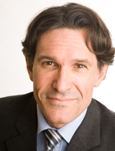Why fees work – Montmarquette report should provoke a much-needed debate among Quebecers

When Université de Montréal veteran economist Claude Montmarquette filed his task force’s report on user fees for public services last week, Finance Minister Monique Jérôme-Forget ducked for cover, stating her government had no plan to raise fees.
What an Olympic-class backflip! Was it not she who had ordered the report and mandated the task force?
But let’s not be too harsh: I’ll bet she was just following orders. Premier’s office memo to all ministers: avoid any controversial reform. Avoid saying anything that could stir up a storm. Don’t rock the Liberal boat that is sailing smoothly through a minority mandate. Subtext: let problems that require unpalatable solutions worsen; after all, there will always be time to deal with them after the deluge – err, the next election.
Too bad. The Montmarquette report deserved a better reception. It provides a much-needed firm base on which to hold an informed debate on user fees. It shows how much of the emotion that surrounds each proposed fee increase is unfounded.
So let’s dispel a few myths:
- No, fees aren’t always going up. In the last 10 years, cost of living as measured by the consumer price index has risen nearly 20 per cent, compared with 13.5 per cent for electricity and three per cent for university tuition.
- No, the Quebec government does not use fees more intensively than other provincial governments. In 2006-07, if the fees in effect across the country had been applied in Quebec, people here would have paid $5 billion more in fees for government services.
- No, higher fees are not a hidden tax. Fees are paid by actual users of services, whereas taxes finance areas of government spending regardless of whether they serve any given taxpayer. As the authors point out: “In many ways, taxes are disguised, denatured or hidden user fees” since they are used to finance services and goods that could be subjected to fees; instead, the cost is borne by all taxpayers rather than by the users.
Compared with taxes, properly set fees provide a clearer signal as to the value of a service received by its users, who must face the true cost of what they are consuming. This gives them an incentive to avoid overconsumption and waste. Rather than fixing fees too low, it is more efficient to use direct and targeted means to help truly needy users.
Example: a few years ago, a well-off friend of mine registered her child in one of our subsidized day-care centres. She was enjoying a prolonged maternity leave and didn’t need a full time space. But hell, her turn had come on the waiting list and with a price as low as $140 a month, why deprive oneself of the flexibility? She could deliver her kid late or fetch him early, which may have been great for both of them.
But taxpayers were paying for that luxury, whereas other parents who really needed a full time space remained waiting. The bureaucratic solution to this type of waste is to make parents swear they need day-care full time and obligate them to leave their kids there a minimum number of hours per week. The market solution is to charge parents the true cost of the service and subsidize only those who are needy.
User fees should be a way of collecting public revenues more efficiently, rather than a way of raising them. Any hike in user fees should therefore be offset by an equivalent reduction in general taxes. This is the condition to make user-fee hikes acceptable to taxpayers.
Example: some time ago, our chief economist, Marcel Boyer, proposed a one-cent increase in the price of a kilowatt-hour of heritage pool electricity. That hike would be compensated by an $800 annual tax cut for a family of four. Low-income households would be subsidized.
A measure such as this would push all consumers – households, institutions, stores and industries – to reduce consumption or invest in energy-saving technology. The energy saved could then be exported to other markets, Ontario or the northeast U.S., at prices higher than domestic rates, thereby bringing badly needed extra revenue into the province.
Bottom line: as long as they’re used to fund the service for which they’re collected, user fees aren’t about government stealing our money. They’re about rational consumption of publicly funded services. And also, in the case of Hydro rates, about creating wealth to benefit all Quebecers.
Paul Daniel Muller is President of the Montreal Economic Institute.

